The stone fruit harvest is gaining momentum in Murcia, where significant volumes are already expected next week. The fruit is arriving with very good quality and high sugar levels as a result of the lack of rainfall in recent months and the high temperatures, which are forcing producers in Murcia to rely more on irrigation. Drought has thus become a big concern for the sector throughout Spain.
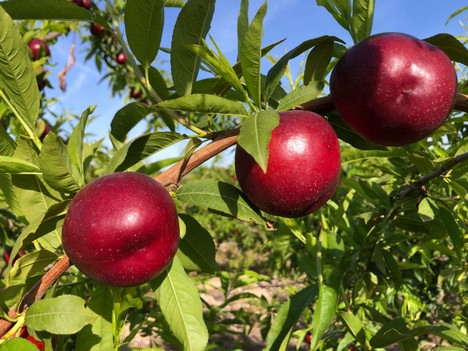
Copacabana nectarines, which are harvested between the first and second week of May
"The high temperatures in March and April have had an impact on the fruit setting of the earliest varieties in Murcia, of which there are fewer kilos available this year, especially in the case of apricots," says Thomas Chevaillier, Technical Director of PSB Producción Vegetal, which in addition to producing and marketing its own stone fruit, has been devoted to breeding varieties for two generations.
"The high temperatures are forcing us to rely more on irrigation, and drought is becoming one of our biggest concerns. However, in Murcia we are used to 'surviving' with little water, so we are still handling it rather well," says Thomas Chevaillier. One positive thing about this is that the fruit is reaching a high Brix."
"The weather in central and northern Europe has not been very good, but as temperatures rise, and given the exceptional quality of this year's fruit, we expect good consumption," says the PSB Producción Vegetal technician. "Prices are, for the time being, quite in line with the available supply," he said.
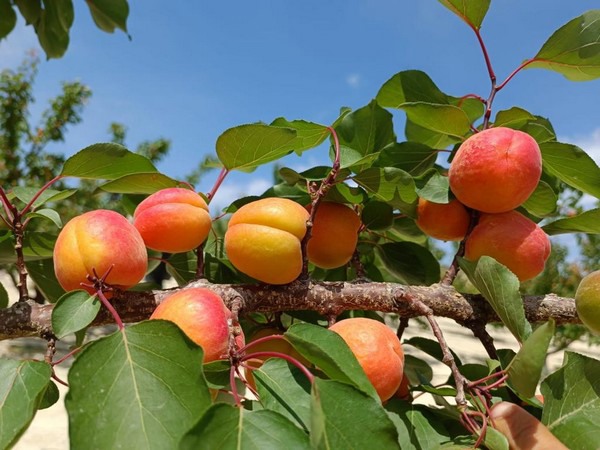
Extra early apricot variety Borsalino, from PSB Producción Vegetal.
The apricot harvest is in full swing at the moment in Murcia, having started early as a result of the heat. The production has again been affected this year in the earliest areas of Murcia. This, according to the entity's technical director, indicates that "climate change is reducing the hours of cold and bringing increasingly warmer autumns and shorter winters. In the higher areas, however, productions are more stable due to the slightly colder weather. Apricot growers in Murcia are, therefore, seeking higher altitudes."
The drought could affect the productions in northern Spain this season, and especially in future ones.
The lack of rainfall is causing the water reserves to hit historic lows in Catalonia and southern France, where some important canals for fruit crop irrigation have already been temporarily closed as an emergency measure. Drought is becoming one of the sector's main concerns.
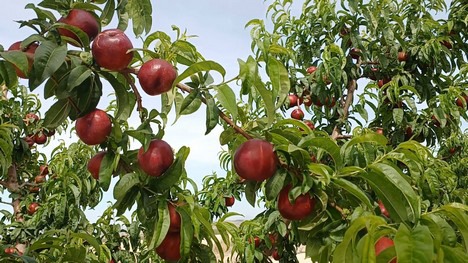
Early "low chilling" nectarine variety Diamentina, from PSB Producción Vegetal.
"There are great concerns, because it is still not raining while the supply of water for irrigation is being cut, which could already affect some productions in Catalonia and take a toll in future campaigns, because without water, the trees die. In Badajoz, growers are on alert for next year's campaign, as this year's needs have been covered thanks to the December rains, which filled the reservoirs."
"Meanwhile, in Murcia, where producers are more accustomed to such conditions, we have cutting-edge technology for precision agriculture that allows for a really efficient use of water, and this, for now, is making it possible for us to endure the campaign. However, the political decision to cut back on the supply of water for irrigation from the Tagus-Segura water transfer due to pressure from environmentalists has sparked more uncertainty amongst producers in Murcia."
"We receive visits from growers from all over Spain to discuss what the varieties of the future will be"
PSB Producción Vegetal has already started to receive the first visits in its exhibition fields, where its apricot, nectarine, peach, flat peach and plum varieties are showcased.
"Right now, a variety worth highlighting is the bicolor, self-fertile early apricot variety Borsalino, which only needs 200 hours of cold. It is a fruit with a good flavor for an early variety, and very well adapted to the Region of Murcia's conditions," said Thomas.
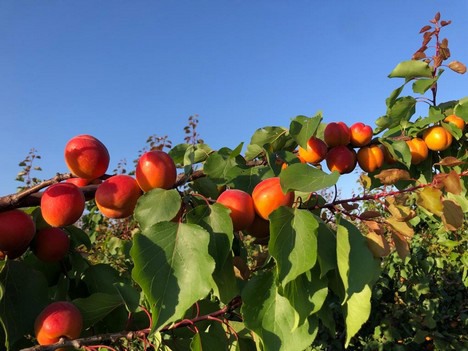
Apricot variety Néstor, which follows the Borsalino in the harvest calendar.
"When it comes to low chilling nectarines, we now have the Diamentina, a white fleshed, very sweet and medium-sized variety, which we started picking last week. There is also the yellow-fleshed Copacabana nectarine variety, which is one of the most consumed, as well as the white-fleshed Paraguayo Zodiac, which we will start picking between the end of this week and the beginning of the next. Every day, we receive visits from growers from all over Spain willing to exchange opinions and outline their experiences and discuss what the varieties of the future will be," said Thomas Chevaillier.
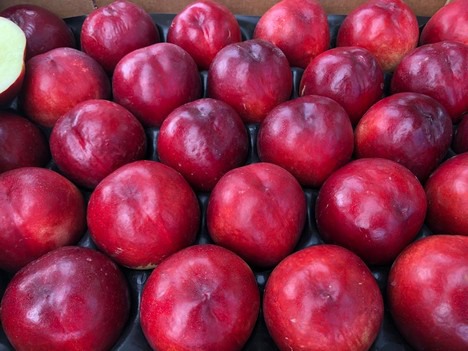
Diamentina nectarines.
For more information:
Thomas Chevaillier
PSB Producción Vegetal
Technical-commercial director
T: +34 620 810 125
[email protected]
www.psbproduccionvegetal.com
